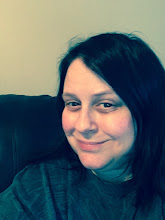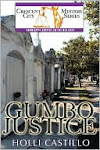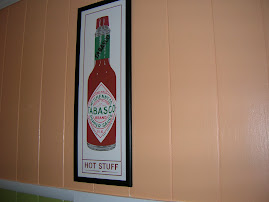A Rose by any other name would smell as sweet. The famous phrase from Romeo and Juliet, where the two star-crossed lovers discuss whether it makes a difference that Juliet is a Capulet and Romeo is a Montague. They seem to think it doesn't. We all know that it did, or they wouldn't both be dead by the end of the play. That Shakespeare may have been on to something.
Turn to the big debates over the distinctions between traditional houses, small presses, indie publishers, self-publishing, vanity presses, e-publishing, and print on demand, or POD. Ultimately, does the public care which category a book falls into before they decide to make a purchase? And do readers even know the distinction?
For a brief explanation- traditional houses are generally those big New York publishers who rarely take on new clients, but publish and promote writers such as James Patterson and Stephen King.
Small presses, formerly known as independent presses, are smaller publishers who perform much in the same way as the larger houses in that they do not charge authors any types of fees to be published, and take on all the expense of the book publication, such as printing costs and cover art.
The distinction between big houses and small presses are: big houses are able to get books into brick-and-mortar book stores easier, and are able to spend big bucks on the promotion of big writers. Small houses tend to use print on demand, which simply means the books are not printed until someone orders them. Small houses may or may not offer advances. Both large and small presses should pay quarterly earnings to its writers, but every contract is different. Both do have contracts.
The title "indie publishers" which used to represent the small houses now is used almost exclusively for self-published. Sometimes, the companies that offer these services call themselves a name that sounds like a traditional or small press. The big distinction here is that the companies that self-publish do not edit the works they publish, but basically provide a means for the writer to get his or her book in print, as it is. Promotion is left entirely to the writer. Vanity presses are basically a method of self-publishing for the author, but frequently charge extremely high fees.
E-publishing is electronic publishing. It is done by most if not all publishers. There is a huge market for e-books with Kindle and Nook, and probably the IPAD by now. Books can also be downloaded onto computers or smart phones. The benefit to the buyers is that e-book are generally cheaper, and more portable. An avid reader can save as many books as his device has memory.
Print on demand again is not a form of actual publishing, but a method to print hard copies of books. It is more ecologically friendly and green than printing vast numbers of books that may not get sold.
So, does it really matter which of the categories a book falls into? Does anyone care if a book has a big New York publisher behind it, a smaller press, or if the writer published the novel on his own?
As a writer with a "small house", I expect my opinion will be different than someone who self-published, or a writer with a traditional, big New York publisher. The truth is that writers are going to side with the method in which they were published. It's the nature of the beast. Most of us need reinforcement as writers that we are actually "real" writers, so our way has got to be the best way.
But turn to my sister, who is "only" a reader, you know, one of those people who actually buys lots of books just to read them and entertain herself. She doesn't care if it's Doubleday, Bantam, Fly-by-Night, Small Press U.S.A., or Look, Mom, No Hands, who published the book. She cares about whether the book has a compelling story that holds her interest, good characters, a good and satisfying ending, and maybe on occasion, price.
But those things may be affected by how the book was published. While I have seen errors in books put out by the New York publishers, those companies do have the wherewithal to do a whole lot of editing if a book needs it. Does this mean their book will be better than a self-published book that is professionally edited? Probably not. It does mean that if Stephen King has an off day of writing, nobody will be the wiser because his errors will be caught by an editor and fixed before it gets in print.
Small presses may have in-house editors, or they may expect their writers to have their work edited by an outside source, such as a writing group, a college professor, a paid editor or the like. Small presses may also have people who perform more than one duty for the company who may assist with editing. They generally will not publish books full of errors because those books tend to not sell well, and small presses need to make as much as they can off each author and each book. Small presses tend to keep their books available longer, because by using POD they didn't waste a whole bunch of money printing books no one will buy.
As far as self-publishing, the degree of editing depends entirely on the writer. Some writers may self-edit their manuscripts to the point of near perfection. Others may pay a professional editor. Still some may not do any of the above and end up publishing crap. Hey, sometimes crap sells.
In the end, writers own prejudices will decide what books they buy, and whether it makes a difference to them how the book was birthed. But for the general reading public, it probably isn't going to matter how the book saw the light of day. If a reader buys any book that turns out to be full of typos, plot holes, or other errors, regardless of how it came to be published, chances are the reader won't buy a second book by that author. And that will ultimately be what causes the downfall of that writer.
So does a rose by any other name smell as sweet? All other things being equal, probably. But a rose that hasn't been properly cared for while in the ground won't bloom the same way as one that has, and almost certainly won't smell the same. (In case you missed it, the analogy was that poorly edited manuscripts stink. Did that come across or does this post need more editing?)















